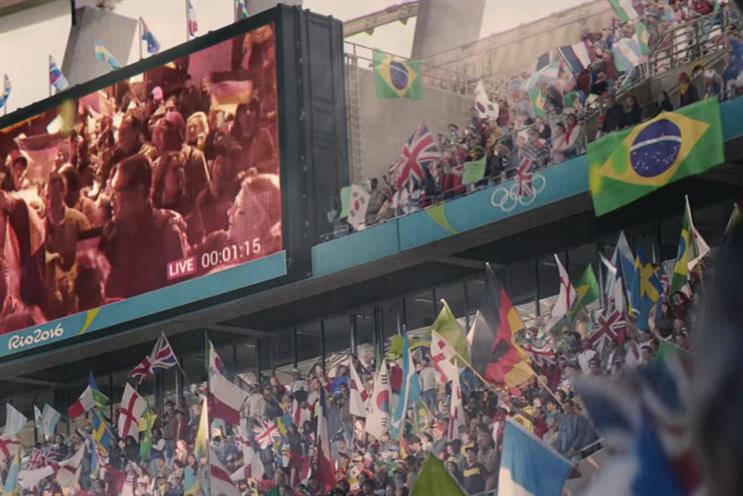Historically, the Olympic Games have been a crowded playing field for brands on social.
Even with the IOC imposing ludicrously heavy restrictions blocking anyone other than official sponsors from sharing or mentioning anything evenly remotely Olympic or Rio-related, there was still an overwhelming amount of content being thrown up by brands every day.
Why? Because the social content marketing bible says you must have a plan and join the conversation of any live cultural event, especially the Olympics, which gives you a two-week window in which you can attempt to shout the loudest.
The Genesis in this case can clearly be found in the book of Oreo, which begat the commandment, "One’s brand must always go after a ‘dunk’ moment from major sporting occasion."
The problem is we are reaching peak "agile and reactive is king". It is easy to grow tired of having to read everyone
The brand gold medallists were those that used social and technology to bring the stories and moments that really mattered into real-time in a visually driven and interactive way. The ability to reflect a live event with complimentary, yet not solely brand-focussed, live content that raised the spirits, enthusiasm and experience of an event, won for brands.
Samsung not only smashed pre-hype to the Olympics with their video that cut together the national teams' anthems.
It also grabbed huge attention by partnering with the Huffington Post virtual reality studio and equipping journalists, artists and filmmakers with 360 cameras to capture small windows of Rio culture.
It was very smart for Samsung, already one of the key players in VR, both to connect with the multi-cultural spirit of the Olympics while simultaneously flexing its design and technology muscle with 360 and VR stories.
The brand gold medallists were those that used social and technology to bring the stories and moments that really mattered into the real time in a visually driven and interactive way.
Coca-Cola was by far one of the biggest sponsor winners, cleverly targeting 18- to 30-year-olds with a heavy and steady mix of influencers, athletes and generally cool people. They created stories, discussed the Games, performed and instantly shared moments at Coke’s Olympics station on real-time platforms like Facebook Live, Instagram Stories and 360 imagery.
Nissan had a clever hook in their #DoItForUs campaign that used hidden cameras to ask athletes if they could prominently feature Nissan and it’s "N for Nissan" sign during their events.
The lead campaign film was Twitter’s "First View" film and appeared on the feeds of all channel users for 24 hours. Ok, so it wasn’t immediately live and interactive, but it was a refreshingly self-aware view about how brands get their piece of the Olympic conversation.
McDonald’s proved to be a big winner in Rio too, despite not having a very strong campaign and content strategy. Surprisingly, it was the restaurant in Rio’s Olympic village that proved to be the most useful for the brand on social. There was a McFlurry of pictures and posts showing queues of athletes lining up for their free McD’s and several prominent athletes shared photos of their post-game binges of nuggets, burgers fries and shakes.
The biggest loser on social media was the International Olympic Committee itself and its stiff restrictions on using trademarks, hashtags and imagery of the Games for all brands that weren’t sponsors.
I get why it does it, and clearly the value of Olympic sponsorship is important to the movement but in the future I hope it realises how all the shares and tiny glimpses into the amazing experience of the Olympics can only help drive the conversation.
Soon, every major event like the Games will be live streamed on every platform – including social. That doesn’t necessarily mean it will diminish the work of brands who are aiming to create content around an event.
It will instead shift their focus from planning around an event to shaping the overall user experience with content that provides more context and excitement.
Matt Chokshi is the client creative director at digital agency Zone.


